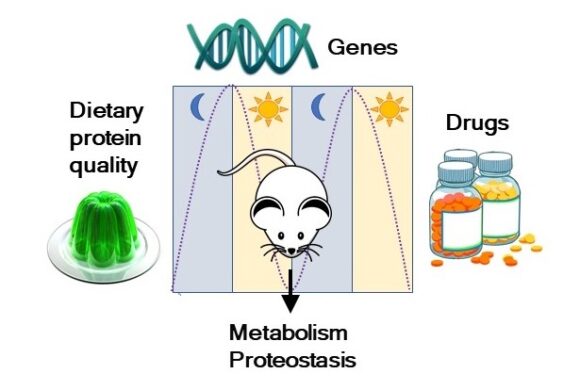
Tracy Anthony, Professor, Department of Nutritional Sciences. Jeff Heckman.
Since she arrived at Rutgers in 2012, fresh from directing an independent research program at the Indiana University School of Medicine, Tracy Anthony, professor in the Department of Nutritional Sciences, has focused on exploring how protein nutrition and exercise can be used to reduce disease and increase healthspan.
To continue these efforts, she was recently awarded a five-year grant from the National Institutes of Health for the project, “Homeostatic Responses to Amino Acid Insufficiency,” for 2021-2026. Valued at $2,686,804, this multi-disciplinary research project involves collaboration among the fields of nutrition and metabolism, biochemistry and molecular biology, and genetics.
Anthony is the lead principal investigator on the grant award. Ron Wek, Showalter Professor of Biochemistry, Indiana University School of Medicine, serves as the other principal investigator. Co-investigators include Premal Shah, assistant professor in the Rutgers Department of Genetics, School of Arts and Sciences, and Ruifeng (Ray) Cao, assistant professor, University of Minnesota.
What are you studying under this NIH grant?
My lab in the Department of Nutritional Sciences studies how protein quality affects metabolism and health. Protein is made of amino acids, and the funded research grant investigates how the balance and supply of amino acids in our bodies are influenced by diet, drugs and genes. The funded project also examines how biological rhythms in metabolism are altered by dietary protein quality.
What led you and colleagues to these particular research questions?
My lab has been studying the role of amino acids in health and disease for more than 20 years. Research questions my lab has studied over this time include, “How does dietary protein quality or specific amino acids support tissue growth recovery after fasting or exercise?” “How can altering the supply of amino acids in the diet promote a healthier and longer life?” “How can chemotherapy drugs which starve tumors of amino acids be made safer for patients?” In the current grant award, we will continue our efforts to discover new information about how our bodies sense and respond to changes in protein quality or amino acid balance, and examine how these discoveries interact with or impact biological rhythms in metabolism.

The Anthony laboratory investigates how the balance and supply of amino acids in the body is influenced by diet, drugs and genes. Her laboratory uses the mouse as a model organism to understand how these changes affect biological rhythms in metabolism and proteostasis.
Can you describe what potentially happens if the body lacks an essential amino acid?
Essential amino acids, also known as indispensable amino acids, are those our bodies do not make and so we must consume them in our diet. A dietary protein of high quality is that which contains all the essential amino acids in balance with bodily needs. Long term consumption of a diet lacking essential amino acids is incompatible with life because every cell in our body requires these amino acids to make new proteins. Interestingly, eating a diet low in essential amino acids is linked to slowed aging and improved metabolism. My lab is interested in understanding when, why, and how amino acid insufficiency can be healthy instead of deadly.
What are the potential benefits of this research?
This research aims to answer the question how protein intake affects health and disease and when – throughout a day, throughout a life – does it matter. Applications of this work include making drugs safer, extending healthy aging and finding novel treatments for genetic diseases.

